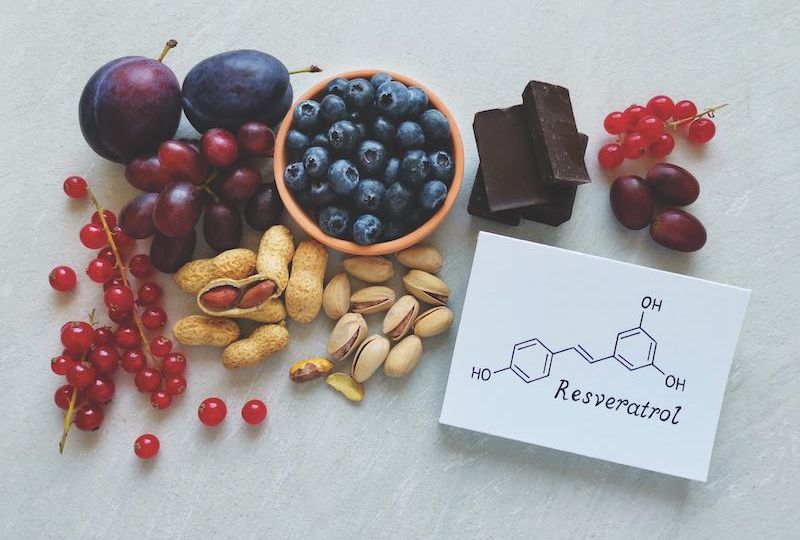
How David Sinclair Sparked the Resveratrol Movement
When Harvard geneticist David Sinclair published his groundbreaking research on resveratrol in 2003, he ignited a firestorm of interest in this humble plant compound. Sinclair’s studies suggested that resveratrol could activate sirtuins—proteins now famously linked to longevity—potentially unlocking the secret to extending human lifespan. The scientific community took notice, and soon pharmaceutical companies were racing to develop resveratrol-based drugs, with GlaxoSmithKline eventually acquiring Sinclair’s company, Sirtris Pharmaceuticals, for a staggering $720 million.
The Historical Context of Resveratrol Research
The resveratrol story didn’t begin with Sinclair, however. The “French Paradox”—the observation that French people enjoyed relatively good cardiovascular health despite diets rich in saturated fats—had already directed attention to compounds in red wine, including resveratrol. Researchers like Valter Longo at USC and Leonard Guarente at MIT were also investigating sirtuins and compounds that might activate them, contributing to the growing excitement around resveratrol’s potential.
Celebrity Endorsements and Popular Interest
This excitement wasn’t confined to academic circles. Health enthusiasts, anti-ageing advocates, and celebrities quickly embraced resveratrol supplements. Renowned longevity physician Peter Attia acknowledged the compound’s theoretical promise while maintaining scientific caution. Meanwhile, biohacker Tim Ferriss included resveratrol in discussions of potential longevity compounds, and wellness guru Gwyneth Paltrow’s Goop featured it among trendy supplements.
Recent Concerns: Why Prominent Figures Are Backing Away
Yet the tide has begun to turn. In several recent podcast episodes, Tim Ferriss—once a vocal proponent of resveratrol—has notably backed away from his earlier enthusiasm. He’s cited personal experiences with joint pain and significant digestive issues after sustained supplementation. Ferriss isn’t alone; other influential voices in the biohacking community have similarly retreated from their initial endorsements, reporting adverse effects including gastrointestinal discomfort, headaches, and in some cases, potentially altered hormone profiles.
Is Dosage the Culprit? Understanding Resveratrol Quantities
These emerging concerns highlight a critical question: are the quantities the problem? Many supplement formulations contain doses dramatically higher than what could be obtained from food sources—sometimes hundreds of times more than what’s present in a glass of red wine. At these pharmacological doses, resveratrol may act less like a gentle nudge towards longevity and more like a blunt instrument, disrupting biological systems in unintended ways. The digestive complaints reported by Ferriss and others might reflect resveratrol’s direct irritation of the gut lining or alterations to the gut microbiome at high concentrations.
The Scientific Reality Behind the Hype
For all the initial fanfare, the resveratrol story has followed a familiar arc in nutritional science—from breathless headlines to sobering reality. The compound does show remarkable properties in laboratory settings: it scavenges damaging free radicals, dampens inflammatory pathways, improves blood vessel function, and even seems to inhibit cancer cell proliferation in test tubes. In certain animal studies, resveratrol-fed subjects showed impressive improvements in markers of health and longevity.
The Bioavailability Challenge
The translation to human benefits, however, has proven challenging. Our bodies rapidly metabolise resveratrol, with precious little of an oral dose ever reaching the bloodstream intact. This poor bioavailability means that achieving the concentrations used in successful lab studies would require enormous—potentially unsafe—doses in humans. The few clinical trials conducted have yielded inconsistent results, often failing to replicate the dramatic benefits seen in simpler organisms.
Navigating the Supplement Market: Quality and Regulation Issues
Additionally, the resveratrol supplement industry emerged before the science matured, leading to products of wildly varying quality and potency. Some supplements contain only trace amounts of the active compound, while others may include unwanted contaminants. Without standardisation or rigorous testing requirements, consumers enter a regulatory wild west when purchasing resveratrol products.
Whole Foods vs. Isolated Compounds: A Fundamental Question
The scientific journey of resveratrol also highlights broader questions about our approach to longevity research. Is isolating single compounds from foods the optimal strategy, or does this miss important synergistic effects? Red wine, for instance, contains numerous polyphenols beyond resveratrol that may work in concert. Perhaps the traditional Mediterranean diet, with its diverse array of plant compounds, offers more wisdom than any single extracted molecule.
The GlaxoSmithKline Disappointment: A Telling Industry Retreat
The corporate side of the resveratrol story offers perhaps the most sobering perspective on its actual potential. When pharmaceutical giant GlaxoSmithKline purchased Sinclair’s Sirtris Pharmaceuticals for $720 million in 2008, it represented one of the most significant investments in anti-ageing research to date. Industry experts viewed the acquisition as validation that resveratrol and sirtuin activation represented a legitimate pharmaceutical frontier. Yet just five years later, GSK shuttered the Sirtris division and discontinued development of its resveratrol-based drugs after disappointing clinical trials.
This wasn’t merely a minor setback—it was a pharmaceutical powerhouse with vast resources and strong financial incentives concluding that the resveratrol pathway wasn’t viable for drug development. Some industry analysts have suggested the decision reflects fundamental issues with resveratrol’s mechanism of action in humans, while others point to the challenges of patenting and profiting from variations of a natural compound. Either way, when a company abandons a $720 million investment, it shows just how difficult the whole area of biohacking really is.
Current Research Directions and Future Prospects
Despite these complications, research on resveratrol continues, though at a significantly reduced scale and with more modest expectations. Scientists are developing more bioavailable formulations and investigating potential applications for specific conditions rather than as a general anti-ageing panacea. Some researchers are exploring resveratrol’s effects on glucose metabolism, cognitive function, and exercise performance—narrower but potentially more achievable targets.
Sinclair’s Personal Stance and the Scientific Uncertainty
For now, resveratrol remains in scientific limbo—neither fully debunked nor definitively proven. Sinclair himself continues to take resveratrol supplements as part of his personal longevity regimen, while acknowledging the need for more human research. This tension between promising preliminary findings and incomplete human evidence exemplifies the challenging path from laboratory discovery to validated biohacking.
Conclusion: The Prudent Approach to Resveratrol
As we await more definitive answers, the most prudent approach is moderation: enjoying resveratrol-containing foods as part of a balanced diet, while maintaining healthy scepticism toward grandiose claims about supplements.
The resveratrol story reminds us that in science—especially nutritional science—the journey from initial discovery to established health recommendation is often longer and more winding than we might wish. It is also always worth asking questions whenever a new ‘miracle cure’ appears.
The Modern Elixir Fallacy: Are We Kidding Ourselves?
Perhaps the most revealing aspect of the resveratrol phenomenon is what it says about our collective psyche. In an age of unprecedented technological advancement, we remain as captivated by the promise of youth-extending elixirs as our ancestors were by the fountain of youth. The explosive growth in supplementation and biohacking—projected to reach $220 billion globally by 2026—reflects not just scientific progress but our deep-seated anxieties about mortality and ageing.
We’ve traded alchemists’ potions for polyphenols, but the underlying wishful thinking persists. Silicon Valley executives practising extreme caloric restriction, wealthy individuals receiving young plasma transfusions, and ordinary consumers swallowing handfuls of unproven supplements daily—all represent modern variations of humanity’s oldest delusion: that we can somehow hack, outsmart, or supplement our way around the fundamental biology of ageing. While scientific advancement is exciting, there’s something tragicomic about our perpetual conviction that this pill, this compound, this regimen will be the one that finally delivers what thousands of years of similar quests have not.
In this light, resveratrol isn’t merely a molecule—it’s a mirror reflecting our eternal struggle to accept our finite nature.

